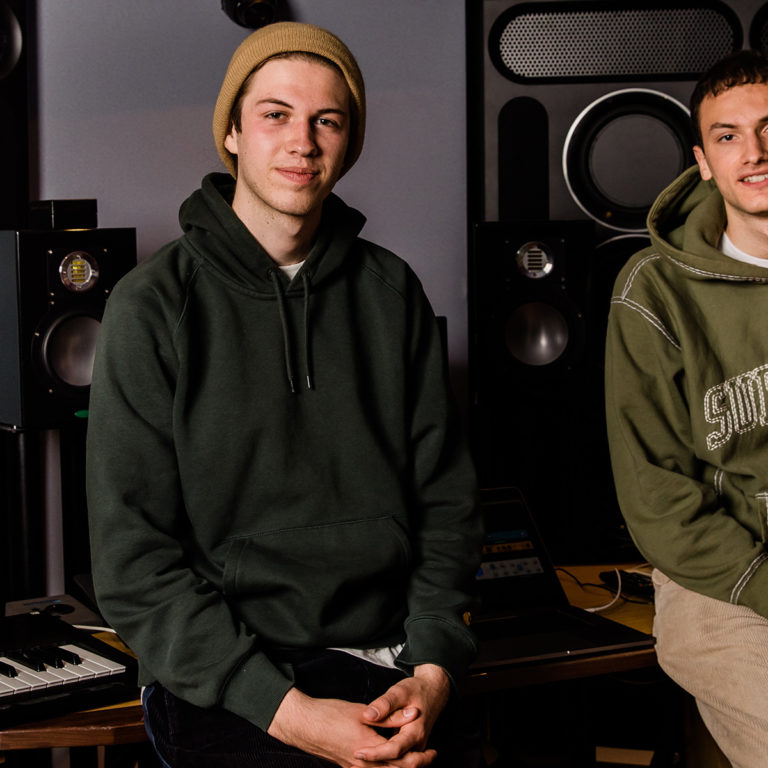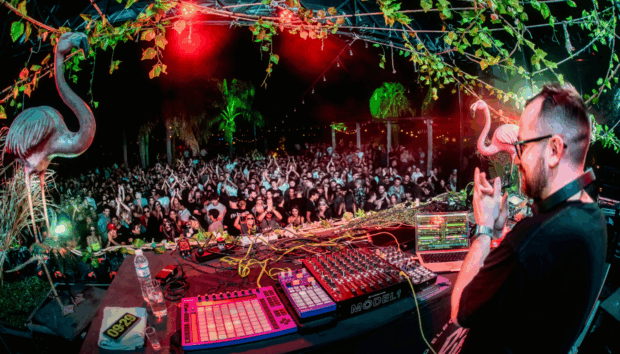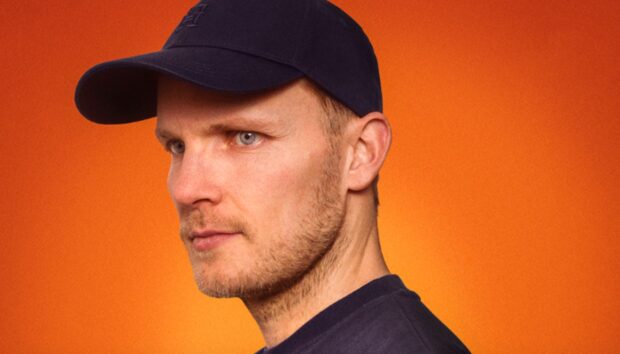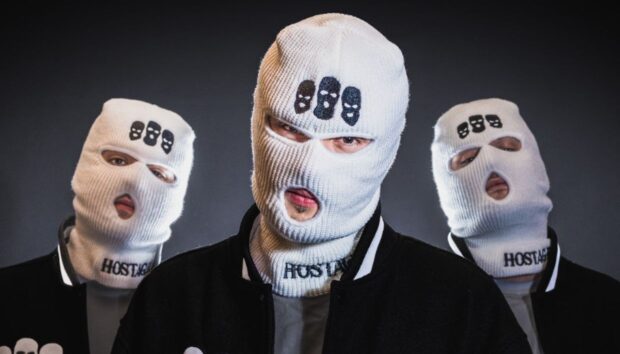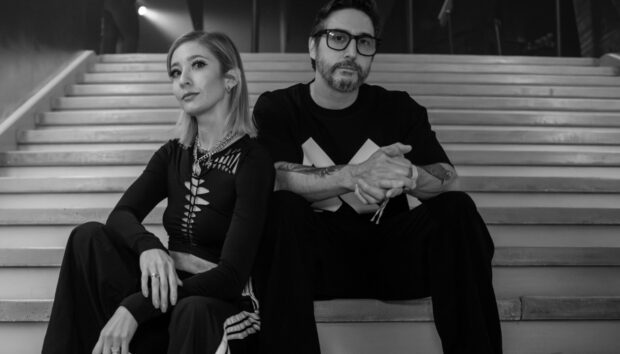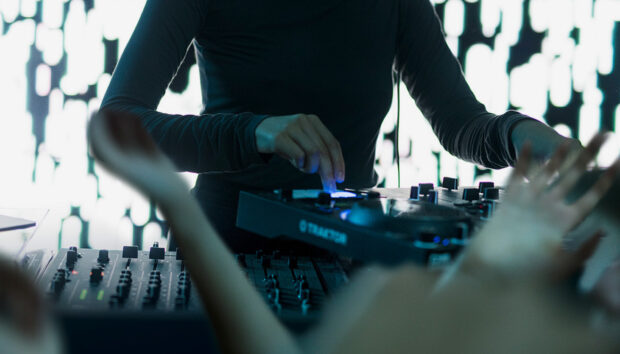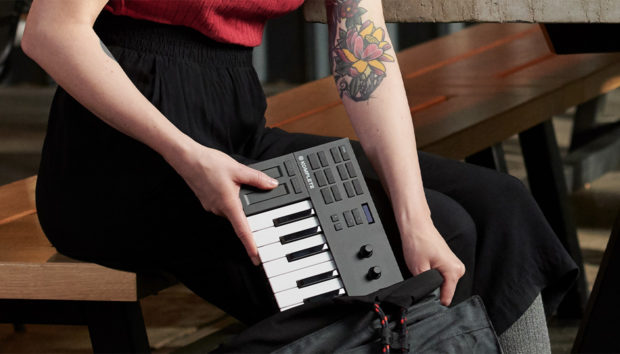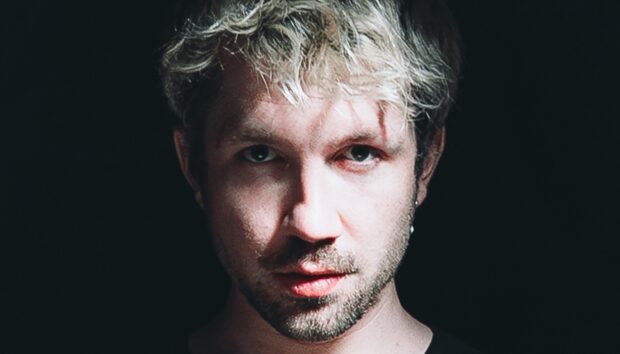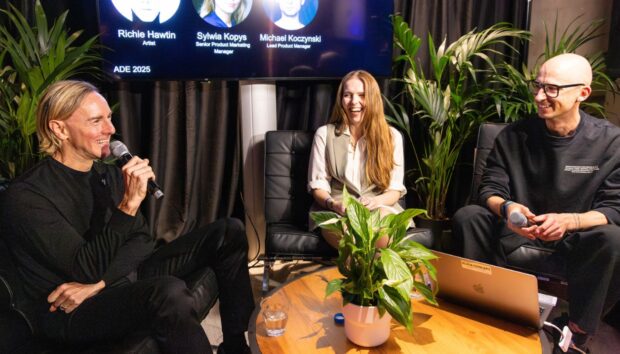When Keven Wolfsohn and Paul Bogumil Goller met studying at Point Blank Music School in 2017, they could’ve never foreseen that just four years later they’d be responsible for almost half the beats on rapper AJ Tracey’s latest album, ‘Flu Game’.
This comes alongside twelve commercial releases and three UK top 10 singles, including ‘Fashion Week’ by Steel Banglez featuring AJ Tracey and MoStack, ‘Dinner Guest’ by AJ Tracey featuring MoStack and ‘I Dunno’ by Tion Wayne, Dutchavelli and Stormzy. As a result, their on-point productions have generated over 200 million streams and counting. In just a short space of time, the duo have already worked with the late Pop Smoke, Rema and the aforementioned UK rap stars. They’re currently working with Mahalia, MNEK and the 2021 winner of the “Rising Star” Brit Award, Griff.
Native Instruments caught up with The Elements at their Tape London Studios base to chat about how they use KONTAKT, how you can put your own twist on things, and even how you can avoid being starstruck when top-tier artists like AJ Tracey, Tion Wayne and MoStack are in the booth.
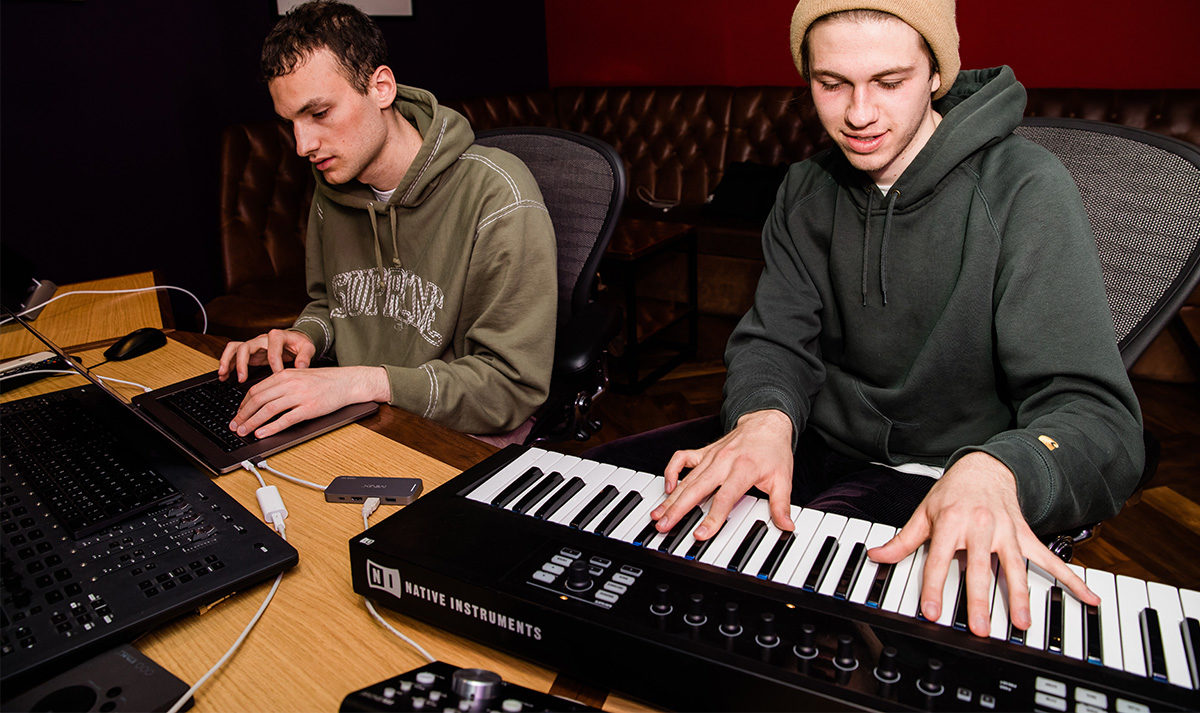
What’s the dynamic like between you two in the studio?
Bogu: It really depends, because we both went to Point Blank and have similar skills as producers. We’ve been working together for like four years now, our skills are very much matched and our computer libraries are mirrored as well, so we kind of use the same setup. It’s always one of us programming on the computer, the other messes around either on keys, guitar, synth or another instrument. So we separate those roles and then get going.
Kev: And then once one of us has a little idea down, we bounce off each other. We go back and forth and then eventually we switch roles, try new stuff out and try to get a new perspective on it.
How do you use KONTAKT in your productions?
Bogu: The KONTAKT pianos like ALICIA’s KEYS, UNA CORDA and THE GIANT are amazing so we jam on them often. We start finding chords there, then move to different sounds. We’re also big fans of the world instruments, like the Cuban and the African percussion. We’ve worked with some Afrobeats artists and on Afrobeats songs, so we’ve used those often.
Kev: And when we need to incorporate orchestral sounds, we instantly think of KONTAKT, like the SESSION STRINGS and the SESSION HORNS, they all sound really good.
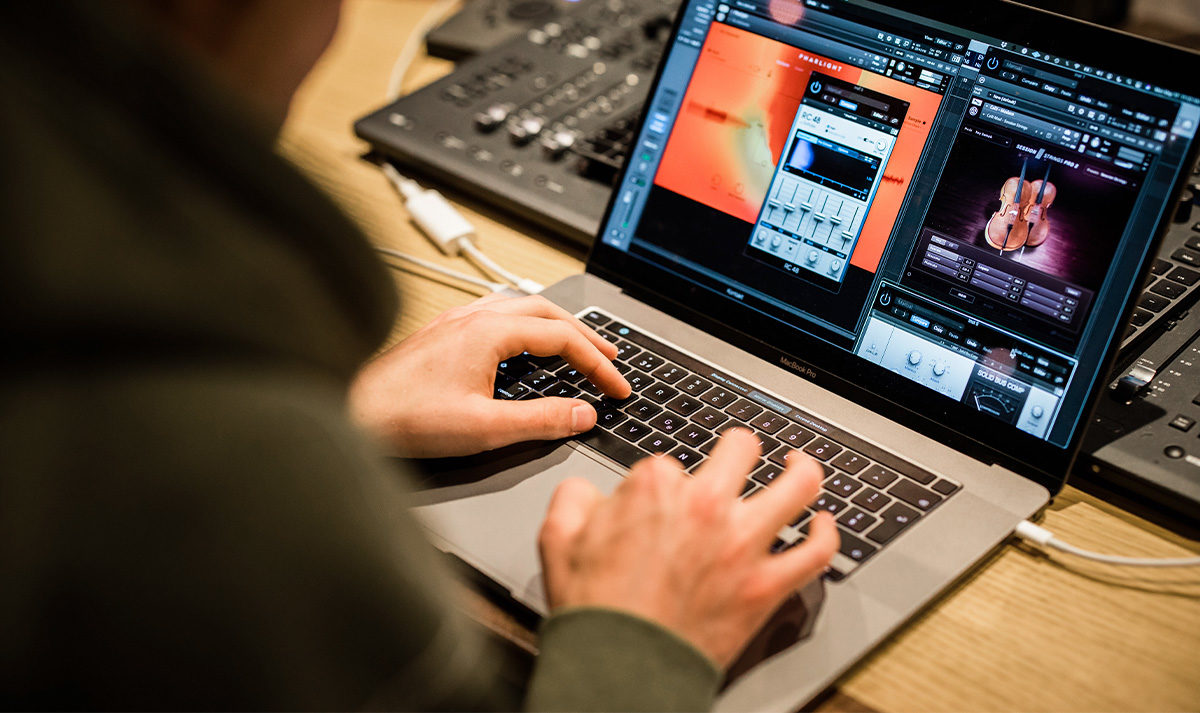
What kind of tools were you using when working on AJ Tracey’s new album, ‘Flu Game’?
Kev: There were probably little instruments that we used from the factory library but I wouldn’t be able to tell you exactly which ones we used, because we work on so much stuff. You forget about the sounds you use very quickly, but we definitely used the KONTAKT factory library and we used the TRANSIENT MASTER on pretty much every channel strip we have in a project.
Bogu: On drums it’s really good so we use it on the kick and snare, to give them extra punch. That’s in every project of ours you can find. So I’m sure on the AJ Tracey stuff there’s some factory library bits.
Kev: And GUITAR RIG, that’s on drum busses to create a weird, new sound. GUITAR RIG is like our go-to plugin because it manipulates your sound in a way you haven’t heard before.
Bogu: It completely reshapes it.
Kev: Even that, it’s super easy to use. You load it on your channel, press two buttons and you have a completely new sound.
What is your studio setup like, what DAW do you use?
Kev: We both use Logic Pro X as our main DAW. Every now and then we do some mixing in Pro Tools, but we like using Logic more because it’s easy to use.
Bogu: We’re more comfortable in Logic, but every now and then we have to go to Pro Tools.
Kev: But when we’re at Tape London, we have some gear. We have a Telefunken microphone we use to record most of the vocals, that’s going through an amp and a valve compressor and then we have the amazing PMCs as monitors, we use them as nearfield monitors although they’re really main monitors. We also bought a couple of synths, a Minimoog Voyager that is lying around at Tape London and a Sequential Prophet X that we use quite a lot, and we’re thinking of getting more synths and more gear once we have our own space.
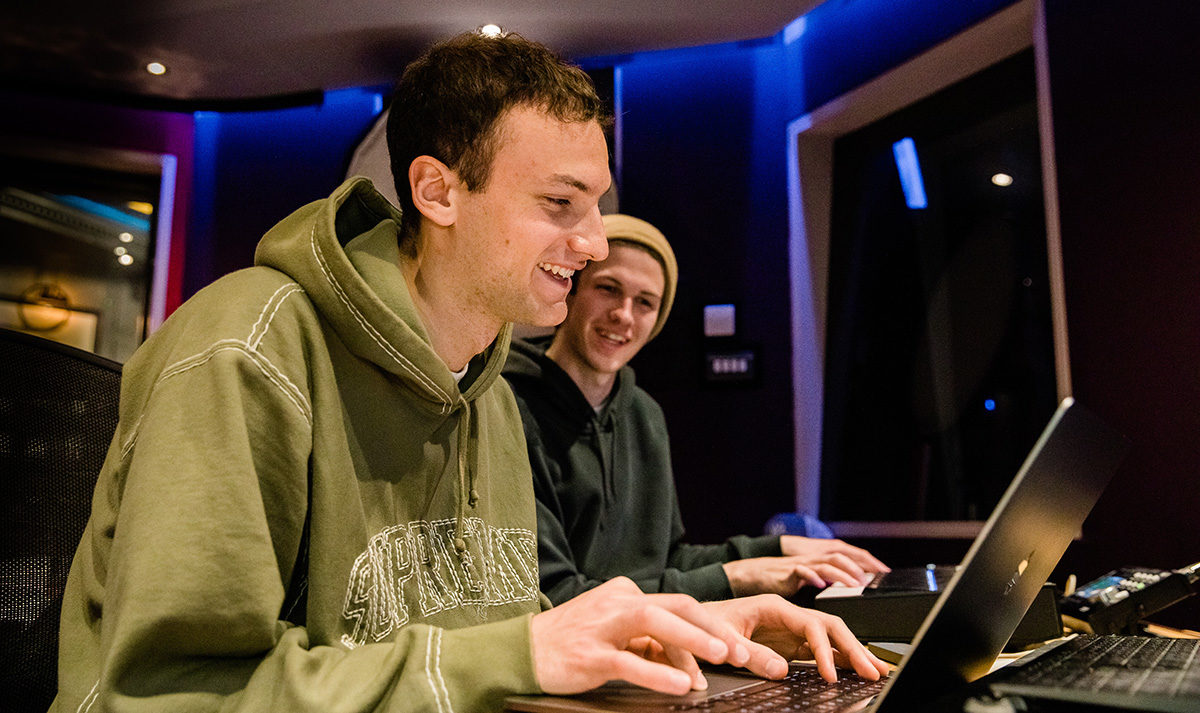
You’ve been working with some huge names in UK rap and beyond, what’s that been like?
Bogu: After Point Blank, the transition from us not being in the industry to being producers was fast. Due to Tape London, because we were always there using that studio, we were working with these names. It becomes a natural thing, being around these people. We’re both not from the UK, I’m from Germany, Kev’s from Switzerland, so lots of those big names are not big to us. It was much easier for us to see them as normal people. We’re in the studio, it’s what we love doing.
Kev: With time, you get used to that environment and being with A-list celebrities and artists. You realise that these are human beings as well, there’s nothing to be weird about or be ashamed of.
It sounds like you tend to be physically in the studio with artists most of the time, do you ever do anything via online?
Kev: Most of the releases we’ve had so far were made in the studio with the artist. So I feel like, for us, that’s our winning strategy because we try to make the artist feel comfortable in the studio and try to make something new and unique with the artist.
Bogu: I think it’s much easier to get a great result if you’re in the room with somebody. You can read them, you can actually chat to them about what they wanna do, so whenever we’ve sent out beats, it’s difficult to get releases.
Kev: Sending out beats is more of a gamble. You need to be lucky with who you’re sending it to and with if the artist is in the right mindset for listening to beats. Also you have to be lucky with the type of beats you send.
Bogu: Also, the music that the artist has put out is not necessarily the music they will put out again. So you need to give them options, new things and exciting, new little instrumentals that could really work.
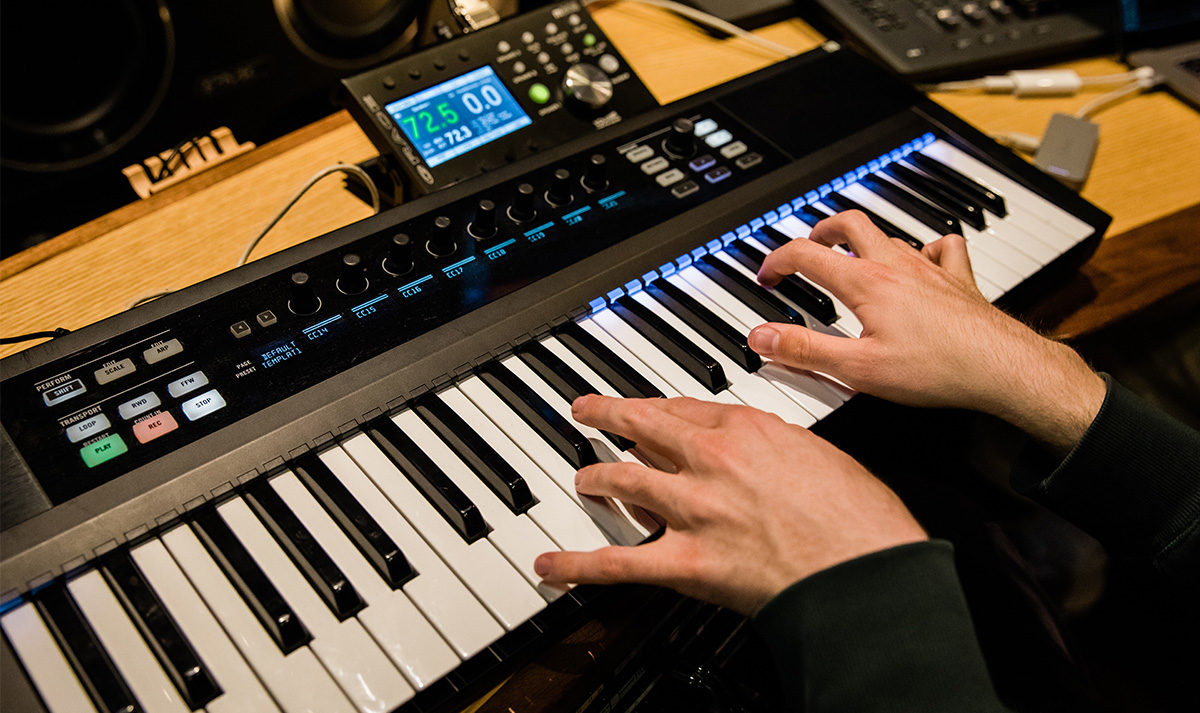
How many beats do you usually have to have ready to play for a rapper?
Kev: It depends, sometimes we start from scratch with the artist in the room and sometimes we have basic ideas or instrumentals lying around. But even then, it can go from playing the first beat and the artist loves it to playing fifty to one hundred beats and the artist is still trying to find the right one!
Bogu: We always try to come ready for every session we do, if we know there’s an artist we haven’t worked with before or they’re coming to the studio we’ll prepare a little folder of different ideas, not just the ones that would be very obvious. Most of the time there’s something there that they love and connect with.
For the sample on ‘Dinner Guest’ by AJ Tracey, where did the inspiration come from to sample The Nightcrawlers?
Kev: That was AJ, we had a session with him and he came to the studio. In the first ten seconds, he said I want to sample this song. He must’ve heard it somewhere the day before, or maybe in the car on the way to the studio. We had the basics of it, and we had that produced in the first thirty minutes. Then he recorded a quick vocal on it and that was it, we finished it during the first lockdown.
Bogu: Yeah it was a good vibe in the studio, AJ always comes with really good ideas. With sample ideas or anything else, he’s not afraid to try something new. He always comes up with new stuff and samples are one part of it. It was AJ in the studio, MoStack came through and they went back to back in the studio and it really worked.
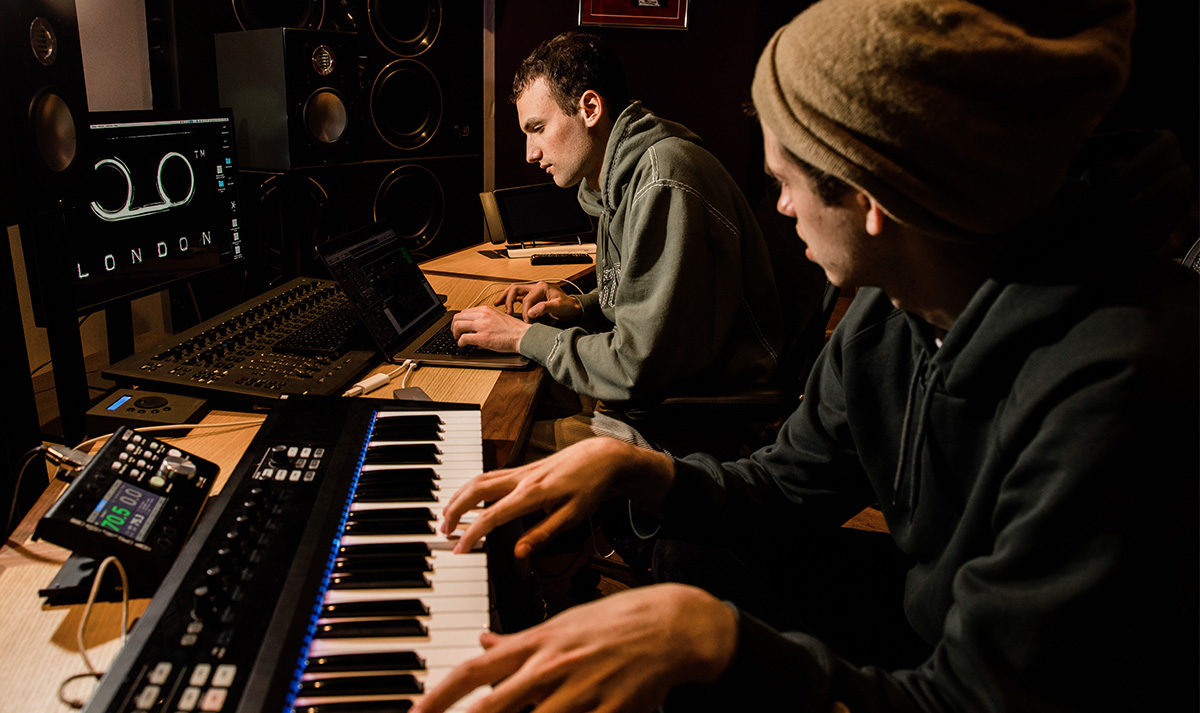
Do you have any advice for aspiring producers who may be looking at your journey and wanting to go down a similar route?
Kev: Don’t be afraid to try new things, create unique stuff and try not to replicate.
Bogu: Yeah, I think for us, one of our advantages is that we came to the UK and hadn’t really heard about UK music and the culture. We had to learn everything from the ground up, the sound and who the hot artists are. That gave us an advantage because we were producing different music before and just soaked up the sound and gave it our own twist.
Pictures: Heather Shuker








